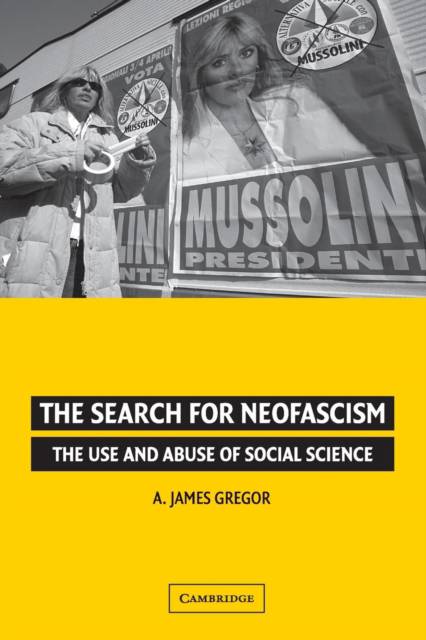
- Afhalen na 1 uur in een winkel met voorraad
- Gratis thuislevering in België vanaf € 30
- Ruim aanbod met 7 miljoen producten
- Afhalen na 1 uur in een winkel met voorraad
- Gratis thuislevering in België vanaf € 30
- Ruim aanbod met 7 miljoen producten
Zoeken
€ 61,95
+ 123 punten
Omschrijving
A study of the informal logic that has governed the half-century of academic writing devoted to what has been generally identified as 'neofascism', together with a careful assessment of those political movements and regimes considered the proper objects of inquiry. The intent of the study is both pedagogical and cautionary. Its central thesis of the work is that terms like 'fascism', 'generic fascism', and 'neofascism' are often used with considerable indifference, applied uniquely to political movements and regimes considered on the 'right' rather than the 'left', intended more often to denigrate rather than inform. The result has been confusion. Within that context some of the most important political movements of our time are considered, including, among others, the Alleanza Nazionale of Italy and the Bharatiya Janata Party of India, both of which have discharged leadership roles in their respective governments: identifying either as 'neofascism' has clear implications for international relations.
Specificaties
Betrokkenen
- Auteur(s):
- Uitgeverij:
Inhoud
- Aantal bladzijden:
- 320
- Taal:
- Engels
Eigenschappen
- Productcode (EAN):
- 9780521676397
- Verschijningsdatum:
- 17/04/2006
- Uitvoering:
- Paperback
- Formaat:
- Trade paperback (VS)
- Afmetingen:
- 155 mm x 227 mm
- Gewicht:
- 435 g

Alleen bij Standaard Boekhandel
+ 123 punten op je klantenkaart van Standaard Boekhandel
Beoordelingen
We publiceren alleen reviews die voldoen aan de voorwaarden voor reviews. Bekijk onze voorwaarden voor reviews.








